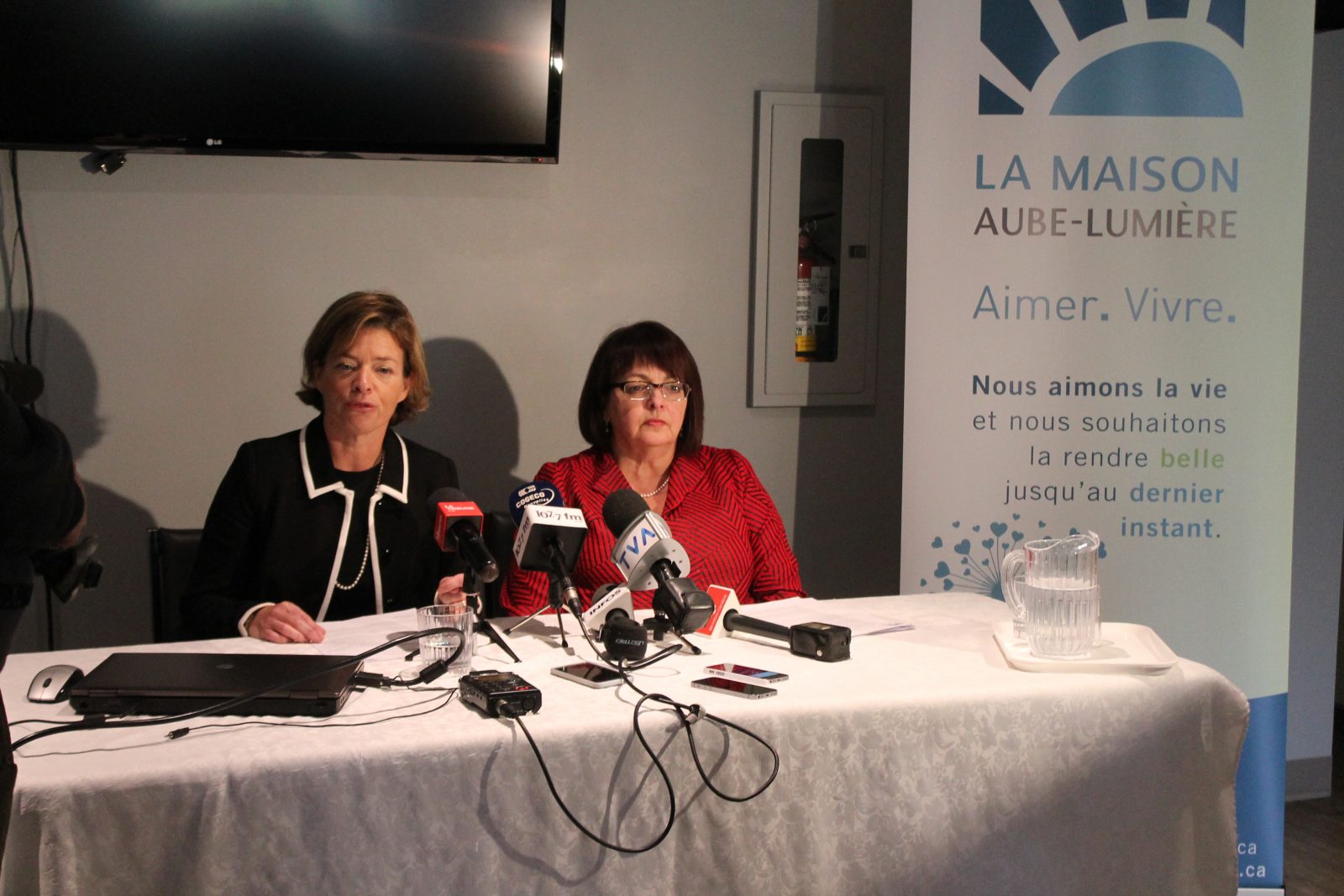The Maison Aube Lumière, Sherbrooke’s palliative care home, announced on Tuesday afternoon that as of February 1st 2016, it will be the first palliative care home in the province to provide access to medically assisted dying. This decision, according to Aube Lumière president Elizabeth Brière, was made after considerable research into the new provincial law on the matter, bill 2, as well as careful thought, consideration, and consultation with both staff and volunteers of the center.
“The Maison Aube Lumière is a palliative care home, and we will continue that care with respect to the person at the end of his life and in recognition of his human rights,” Brière said, “as a result, the Board of Directors of the Maison Aube Lumière has unanimously decided to grant access to doctor-assisted death.”
In accordance with the stipulations of the new law, the procedure will only be made available as an exceptional measure and only as a last resort. Those seeking death must have exhausted all other care options and be in such a state of suffering that it is deemed acceptable by two different physicians. In order to go through with the procedure, the patient must be judged apt at each step of the process by the accompanying doctors.
Aube Lumière Executive Director Marie Bécotte emphasized that this is not a service that the home will be offering, but something that must be requested by the patient after careful personal consideration. She pointed out that the law is very clear about doctor-assisted death being a choice that has to come from the patient himself and that it would be considered invalid if the patient was judged either to be pressured by family or no longer in his right mind.
The February start date was selected given that the Ministry of Health will be holding training sessions at the end of this month. The Sherbrooke home has then reserved the months of December and January to create protocols with regard to the new procedure and carry out the necessary in-house training. The home will also work to create clear communication tools for those who decide to seek out doctor-assisted death so that all of the details of the process and the rules can be clearly outlined from day one.
Brière drew a distinction between medically assisted dying and the practice of palliative sedation, which has been practiced at Aube Lumière between 18 and 20 times since it opened 20 years ago. While the former ultimately amounts to a lethal injection, the latter practice involves sedating the patient into a coma and allowing their disease to run its course. Brière said that since the passage of Bill 2, five different patients in the home have requested access to doctor-assisted death.
Palliative care homes are not obligated, under Bill 2, to provide access to doctor-assisted death and many have come out firmly against the procedure, but Aube Lumière committed to analyse the situation when the law passed. Following the internal research and conversations that took place, the home arrived at the decision to go ahead.
“Before making a decision, the board of directors determined that it was absolutely essential to know what the people on the inside thought.” Bécotte said. “If we say yes, but no one wants to do it, then we are not is a good place.”
According to the Executive Director, a survey was given to all staff and volunteers asking two questions: whether they were in favour of the Maison Aube Lumière allowing access to doctor-assisted death and whether it would impact their ability to work at the home if the decision made was counter to their personal beliefs. Bécotte said that with a 60 per cent rate of participation, 61 per cent of those surveyed said yes to question one, and only seven per cent said that they would no longer be able to work at the home if the decision went through.
That feedback, the Executive Director said, leaves the home with much to discuss, but it was enough to provide room for the unanimous acceptance of the notion by the board.
“There are lots of grey zones left in the “how” of this decision,” Bécotte said. “This is not a black and white matter.”
Brière emphasized that the entry conditions for the home will not change as a result of this decision, meaning that only terminal cancer patients with a prognosis of less than three months, living in the service region of the home will be eligible to come to the home.






